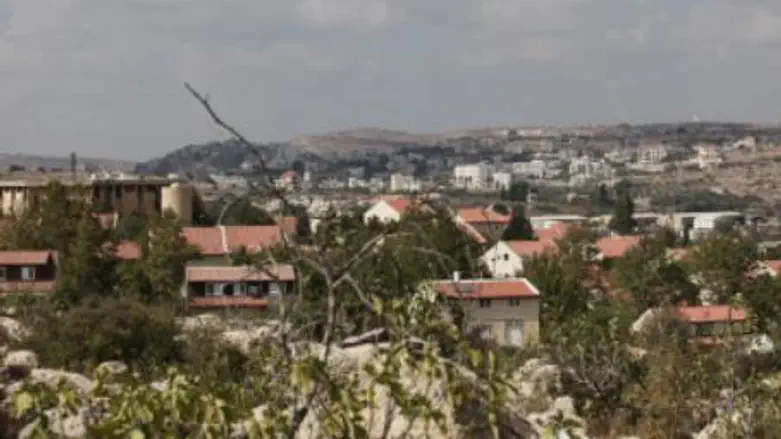
Usually, sewage treatment plants don't make the news, unless they break down (as happened recently in New York). But in Judea and Samaria, even the most prosaic issues become the stuff of international headlines – and, inevitably, another point of contention between right and left.
To wit: On Thursday, the High Court ordered that a sewage treatment plant built by the Binyamin community of Ofra not be permitted to go on-line. The order was given in response to a lawsuit by radical leftwing attorney Michael Sfard on behalf of the radical left Yesh Din group, neither of whom have a standing in the ownership issue. Israel's Supreme Court allows non-personally involved parties to file land ownership suits, whether or not the owner - if there is one to be found - wants to do so, a practice condemned by Judea and Samaria residents.
The petition claimed that the land on which the sewage plant was built was actually private Arab land, and that the proper steps to acquire it had not been taken. As such, the petition stated, the plant was illegal and should be torn down.
The story made headlines in all the Israeli papers, and is likely to be picked up by the foreign media as well. During the hearing, one of the judges hearing the case, Uzi Fogelman, said that the case was so egregious, with the state so involved in “so clearly” an illegal case to an extent that “I have not yet seen.”
He proceeded to fine the State and Binyamin Regional Council the sum of NIS 20,000 (approx. $5,900) for the petitioners' court expenses. Sfard, for his part, said that the judgment was correct, and that the case was “serious and apparently criminal.”
So is this an open and shut case of “settler land theft” that was finally put right by the Israeli court system? Not exactly, says Akiva Sylvetsky, who, as the legal advisor of Mateh Binyamin Regional Council, has been intimately involved in the case for years. “I am actually very encouraged by the court's decision,” says Sylvetsky. “The court did not order the plant to be torn down. Instead it ordered that operations in the plant be suspended until a legal arrangement is made for the land, and I have no doubt that such an arrangement will eventually be found.”
The root of the problem lies not with Ofra at all, but with the State – specifically the Civil Administration, which chose the site and funded the plant. The story goes back to 1996, when it was decided that Ofra needed a sewage treatment plant.
Ofra officials accompanied Civil Administration experts in the area, and the latter insisted that the best – and only – place where the plant could be built was on the particular plot where construction eventually took place. The CA was to file the necessary paperwork to ensure that the plot was in fact state land and cleared for construction.
Apparently it didn't, says Sylvetsky. “It must have been pretty obvious to them then that this was private Arab land.” That didn't stop the CA from authorizing the project – and several years later, when Ofra officials were called onto the carpet by environmental officials as to why they had not found an ecological solution for the town's solid waste, they proceeded with the construction of the plant.
“Yesh Din later recruited an Arab – whom it does not know for sure is an owner of the land - and filed the lawsuit.” Still, the court determined that the lack of clarity on the status of the land should have been enough for the CA to find a different spot for the plant – or at least hold off until the necessary steps were taken to acquire it legally. “All Ofra wanted to do was comply with environmental regulations,” says Sylvetsky. “It really is the state's job to deal with issues like that.”
For now, then – thanks to the lack of planning and several missteps, mostly by the CA – the plant remains a “white elephant.” But Sylvetsky feels that will change. “The court rejected out-of-hand demands by Yesh Din that the plant be torn down, and rightly so. Now the state will have to do what it should have done in the first place – make sure that things are done properly.”
It can always purchase the land, if there is a real owner and if he can be found.